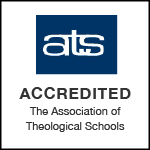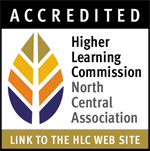University of Dubuque Aviation Programs Retain International Accreditation
Aug 5, 2010 | University of Dubuque Theological Seminary
The University of Dubuque's bachelor of science programs in aviation management and flight operations have been reaffirmed for full accreditation from the Aviation Accreditation Board International (AABI), formerly the Council on Aviation Accreditation, Inc., an international accrediting body.
AABI is committed to recognizing and promoting excellence in education and training of aviation professionals across the United States and the world. Accreditation ensures that professional programs achieve and maintain a level of performance, integrity, and quality that entitles them to the confidence of the educational community and the public they serve. Additionally, accreditation opens internship opportunities that are only available to students training in an accredited program.
"UD is proud to be one of 31 institutions of higher learning world-wide with accredited aviation programs," stated Steve Accinelli, aviation department chair and director of the Flight Operations Center. "Retaining this level of accreditation, assures that we are operating at the highest standard of quality in the industry, as measured by outside evaluators. It ensures that our students are studying and training under a high quality curriculum with significant industry interface. Our accreditation was reaffirmed without the requirement of an interim report - which further emphasizes the standards we keep."
The University of Dubuque Aviation Programs provide students with the academic and professional tools needed to achieve success in the constantly changing aviation industry. The mission of the Aviation Department is to provide students with the professional skills that allow for success in all segments of the aviation industry while enhancing their critical thinking and decision making skills. The Aviation Department supports the University of Dubuque Mission by establishing excellence in professional preparation, fostering a zeal for life-long learning, focusing on the development of professional skills enhanced by technology and integrated with safety practices.





